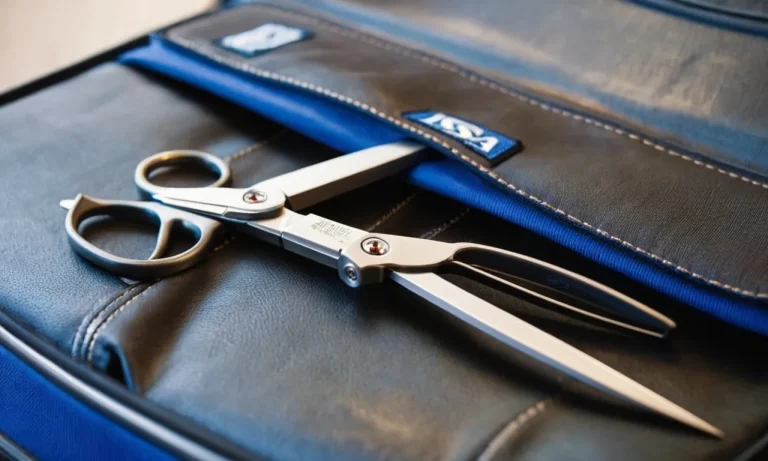You just finished a fabulous multi-course meal at a nice restaurant. When the check comes, you notice an 18% automatic gratuity has been added.
But the service wasn’t great – can you refuse to pay the automatic gratuity?
If you’re short on time, here’s a quick answer:
In this comprehensive guide, we’ll cover everything you need to know about refusing automatic gratuity charges.
We’ll look at when restaurants can add them, what counts as a valid dispute reason, how to politely discuss it with staff, and what to do if you’re still forced to pay.
When Restaurants Can Add Automatic Gratuity
Automatic gratuity, also known as a service charge, is a common practice in many restaurants. It is added to the bill to ensure that the service staff receives a fair tip for their hard work.
While some may wonder if they can refuse to pay this automatic gratuity, it is important to understand the circumstances in which restaurants can add it.
Large Groups or Parties
Restaurants often add automatic gratuity for large groups or parties. This is because serving a large number of people requires additional effort and attention from the staff.
Automatic gratuity ensures that the service staff is adequately compensated for their extra work.
The specific threshold for what constitutes a large group may vary from restaurant to restaurant, but it is typically around 6 to 8 people.
Special Events or Holidays
During special events or holidays, restaurants may add automatic gratuity to ensure that their staff is rewarded for working during peak times.
These busy periods often require the staff to handle a higher volume of customers and provide exceptional service.
Automatic gratuity helps to guarantee that the hard-working servers are appropriately compensated for their efforts.
Restaurant Policies
Some restaurants have policies in place that require automatic gratuity for certain situations. These policies may be based on factors such as the size of the party, the duration of the meal, or the type of service provided.
It is important to familiarize yourself with the restaurant’s policies before dining there to avoid any surprises when the bill arrives.
It is essential to note that automatic gratuity is generally disclosed to customers before they place their orders.
This transparency allows diners to make informed decisions about whether to dine at the establishment or not.
While there may be instances where customers may question the need for automatic gratuity, it is important to understand that it serves as a way to ensure fair compensation for the hard-working service staff.
Remember, the service staff relies on tips to make a living, and by paying the automatic gratuity, you are supporting them in their profession.
Valid Reasons to Dispute Automatic Gratuity
Automatic gratuity, also known as a service charge, is a common practice in the service industry. It is an additional fee added to the bill to compensate the wait staff for their service.
While most people understand and willingly pay this charge, there may be valid reasons for disputing it in certain situations.
1. Poor Service
If the service provided by the wait staff was subpar, it is reasonable to question the automatic gratuity. After all, gratuity is meant to reward good service, not to be an obligatory payment for lackluster service.
If your server was rude, inattentive, or made significant mistakes throughout your dining experience, you may have grounds to dispute the automatic gratuity.
2. Hidden Charges
Some restaurants may include an automatic gratuity without clearly informing the customers. This lack of transparency can lead to confusion and dissatisfaction among patrons.
If you were not made aware of the automatic gratuity before dining or if it was not clearly stated on the menu or bill, you may have a valid reason to dispute it.
3. Large Group Dining
Automatic gratuity is often added to bills for large groups as a way to ensure fair compensation for the wait staff who handle multiple tables simultaneously.
However, if you believe that the service provided to your large group did not warrant the automatic gratuity, you may choose to dispute it.
This could be the case if the service was slow, the food quality was poor, or if there were other significant issues that affected your dining experience.
4. Duplicate Charges
Errors can happen in the billing process, and sometimes automatic gratuity may be added twice or included in the total bill amount.
If you notice duplicate charges or discrepancies in the bill, it is essential to bring it to the attention of the restaurant staff.
Disputing the automatic gratuity in such cases is reasonable, as you should only be paying for the service charge once.
5. Dissatisfaction with Restaurant Policies
In some cases, you may choose to dispute the automatic gratuity due to your dissatisfaction with the restaurant’s policies or practices.
For example, if the restaurant has a policy of adding an automatic gratuity for all dine-in customers, regardless of the quality of service, you may feel that this is unfair and choose to challenge the charge.
It is important to note that disputing automatic gratuity should be done with tact and respect. Start by discussing your concerns with the restaurant staff or management, and if necessary, escalate the matter further.
Remember to remain calm and polite throughout the process to achieve a satisfactory resolution.
How to Politely Dispute with Restaurant Staff
Disputes with restaurant staff can be uncomfortable, but it’s important to handle them politely and respectfully. Here are some tips on how to navigate these situations:
1. Stay calm and composed:
When you find yourself in a dispute with restaurant staff, it’s crucial to remain calm and composed.
Getting angry or confrontational will only escalate the situation and make it harder to find a resolution.
Take a deep breath, and approach the staff member with a polite and respectful tone.
2. Clearly communicate your concern:
Clearly communicate your concern to the staff member. Explain the issue calmly and provide any necessary details.
It’s important to be specific and avoid making accusations or assumptions. By clearly articulating your concern, you increase the chances of finding a satisfactory resolution.
3. Ask for clarification:
If you are unsure about a charge or a service, politely ask for clarification. It’s possible that there may have been a misunderstanding or a mistake.
By seeking clarification, you open up the opportunity for the staff member to explain the situation and potentially resolve the dispute.
4. Request to speak with a manager:
If the staff member is unable to resolve the dispute or you feel that your concern is not being addressed properly, you can politely request to speak with a manager.
The manager may have more authority to address the issue and find a satisfactory resolution.
5. Be open to a compromise:
In some cases, reaching a compromise may be the best solution. If the staff member offers an alternative or a partial resolution, consider whether it is acceptable to you.
Being open to a compromise can help to resolve the dispute amicably and avoid any unnecessary tension.
Remember, disputes with restaurant staff can happen, but it’s important to handle them politely and respectfully.
By staying calm, clearly communicating your concern, and being open to a resolution, you increase the chances of finding a satisfactory outcome.

What To Do If Forced to Pay
Being forced to pay an automatic gratuity can be frustrating, especially if you believe that the service you received was not up to par.
However, it is important to handle the situation calmly and effectively. Here are some steps you can take if you find yourself in this situation:
1. Assess the situation
Before taking any action, it’s important to assess the situation. Evaluate the service you received objectively and consider if it truly warrants refusing to pay the automatic gratuity.
Keep in mind that tipping is a customary practice in many industries, and the automatic gratuity is often put in place to ensure fair compensation for the service staff.
2. Speak with the manager or supervisor
If you believe that the automatic gratuity is unjustified, politely approach the manager or supervisor and explain your concerns.
Be respectful and provide specific examples of why you feel the service did not meet your expectations.
Engaging in a calm and constructive conversation may lead to a resolution or a compromise.
3. Check the establishment’s policy
Before refusing to pay the automatic gratuity, it’s essential to check the establishment’s policy.
Some places may have a clear policy stating that the automatic gratuity is mandatory, while others may allow customers to opt-out under certain circumstances.
By familiarizing yourself with the policy, you can better understand your rights and options.
4. Consider leaving a lower tip
If you are unable to have the automatic gratuity waived, consider leaving a lower tip based on the quality of service you received.
This allows you to express your dissatisfaction while still acknowledging the effort put in by the service staff.
However, it’s important to note that completely refusing to tip may reflect poorly on you as a customer.
5. Leave a constructive review
If you feel strongly about the service you received, consider leaving a constructive review online. This provides feedback to both the establishment and potential future customers.
However, be sure to keep your review fair and objective, focusing on your personal experience rather than making generalizations.
Remember, it’s essential to handle these situations with grace and respect. Engaging in a polite and constructive manner will increase the likelihood of a positive outcome and maintain a respectful relationship between you and the establishment.
State Laws on Automatic Gratuity
When dining at a restaurant, you may have come across an automatic gratuity added to your bill. This additional charge, typically around 18-20% of the total bill, is meant to ensure that servers are adequately compensated for their service.
However, you may wonder if it is possible to refuse to pay this automatic gratuity. The answer to this question varies depending on the state you are in and the specific circumstances surrounding the gratuity.
State Laws and Regulations
Each state in the United States has its own laws and regulations regarding automatic gratuity.
Some states have specific guidelines for when and how automatic gratuity can be added to a bill, while others leave it up to the individual establishment’s discretion.
It is important to familiarize yourself with the laws in your state to understand your rights as a consumer.
For example, in California, it is illegal for a restaurant to add an automatic gratuity to a bill without the consent of the customer.
This means that if you do not agree to pay the automatic gratuity, the restaurant cannot force you to do so.
On the other hand, in states like New York, restaurants are allowed to add an automatic gratuity to the bill as long as it is clearly stated on the menu or in a prominent location.
Exceptions and Special Circumstances
While state laws dictate the general rules surrounding automatic gratuity, there are exceptions and special circumstances to consider.
For instance, if you are dining with a large group, some restaurants may add an automatic gratuity as a way to ensure that the server is adequately compensated for the extra work involved in serving a large party.
In such cases, it may be more difficult to refuse to pay the automatic gratuity.
Additionally, if the restaurant clearly states on their menu or in their policies that an automatic gratuity will be added for certain situations, such as during holidays or busy weekends, it may be more challenging to refuse to pay.
It is always a good idea to carefully read the menu or inquire about any automatic gratuity policies before dining at a restaurant.
Resolving Disputes
If you find yourself in a situation where you believe you should not be required to pay the automatic gratuity, it is best to address the issue directly with the restaurant staff or management.
Politely explain your concerns and try to come to a resolution.
If the issue remains unresolved, you may consider filing a complaint with your state’s consumer protection agency or seeking legal advice, depending on the severity of the situation.
Ultimately, understanding the state laws and regulations regarding automatic gratuity can help you navigate these situations with confidence.
By familiarizing yourself with your rights as a consumer, you can make informed decisions and advocate for yourself when necessary.
Conclusion
While automatic gratuity is a common practice at many restaurants today, you can dispute the charge if service was unsatisfactory.
Always provide valid reasons and discuss it politely with management. Check state laws for additional recourse if needed.
With the tips in this guide, you can refuse automatic gratuity when warranted while keeping relations civil.






